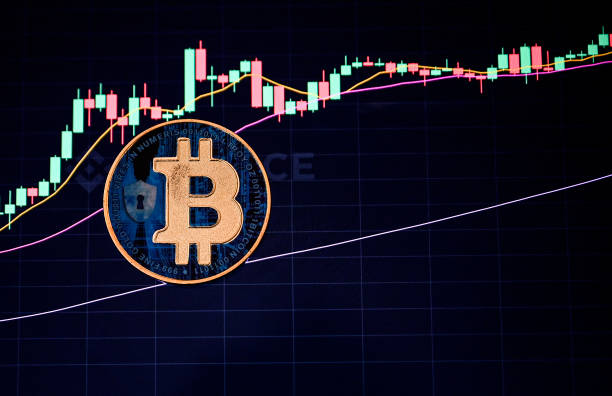Trump could ask Supreme Court to halt tariff block as soon as Friday
Trump trade advisor Peter Navarro said the administration has other tariff options available, even if the Court of International Trade ruling stands.

U.S. President Donald Trump speaks during an event announcing new tariffs in the Rose Garden at the White House in Washington, April 2, 2025.
Chip Somodevilla | Getty Images
The Trump administration said it may ask the U.S. Supreme Court as soon as Friday to immediately pause a federal court ruling blocking many of President Donald Trump's tariffs.
The U.S. will seek the "emergency relief" from the nation's highest court "to avoid the irreparable national-security and economic harms at stake," it said in a filing in the U.S. Court of Appeals for the Federal Circuit on Thursday morning.
But the government said it will only take that step if the federal appeals court does not quickly issue at least a temporary pause of the tariff ruling.
"The Supreme Court must put an end to this," White House press secretary Karoline Leavitt said Thursday afternoon in a blistering attack on the three judges who struck down Trump's "reciprocal" tariffs and other duties.
The judges "brazenly abused their judicial power to usurp the authority of President Trump to stop him from carrying out the mandate that the American people gave him," Leavitt claimed in a press briefing.
"These judges are threatening to undermine the credibility of the United States on the world stage," she added.
Her comments were the Trump administration's latest salvo against the panel on the U.S. Court of International Trade, whose ruling Wednesday night dealt a major blow to the president's trade agenda.
As it seeks relief from the higher courts, the Trump administration is also asking that the trade-court judges pause any enforcement of their ruling while the case is being appealed.
Later Thursday, a federal judge in a separate case in Washington, D.C., also declared that many of Trump's tariffs are unlawful.
"We are living under a judicial tyranny," White House deputy chief of staff Stephen Miller wrote Thursday morning in response to the ruling, escalating his initial claim that "the judicial coup is out of control."
Top trade advisor Peter Navarro accused the court of being "globalist" and "pro-importer" on Bloomberg TV Thursday, and claimed it was biased against the administration's tariff policies.
"We have these unelected judges who are trying to force their own will when it comes to tax policy, trade policy and all matters of the economy," Trump advisor Jason Miller said during a Fox Business interview Thursday morning.
Those three judges — Jane Restani, Timothy Reif and Gary Katzmann — were appointed to the federal bench by two Republicans, Presidents Ronald Reagan and Trump, and one Democrat, Barack Obama, respectively.
The Trump administration in Thursday's court filing slammed the judicial panel's ruling, saying it "rests on a dangerously flawed interpretation of the President's tariff authority."
The trade court also "erred in second-guessing the President's judgment that these tariffs are needed to address the national emergencies he declared," the government said.
Wednesday's ruling invalidated dozens of country-specific tariffs that Trump imposed earlier this year under the purported authority of the International Emergency Economic Powers Act.
The judges found that the law does not "confer such unbounded authority" to presidents.
The nationwide, permanent block they imposed covers all of the retaliatory tariffs that Trump issued in early April as part of his sweeping "liberation day" plan to reshape international trade with the rest of the world.
The ruling also bars the administration from making any future modifications to the tariffs in question. The court gave the administration 10 days to make the necessary changes to carry out the orders.
The Trump administration filed a notice of appeal shortly after the judgment came down.
Read more CNBC politics coverage
Trump and the other defendants in the case have also asked the trade court to pause enforcement of its ruling while the appeal process plays out.
"It is critical, for the country's national security and the President's conduct of ongoing, delicate diplomatic efforts, that the Court stay its judgment," Department of Justice attorney Sosun Bae wrote.
Bae pointed to declarations from Secretary of State Marco Rubio, U.S. Trade Representative Jamieson Greer, Commerce Secretary Howard Lutnick and Treasury Secretary Scott Bessent, who all warned that the ruling would "destroy" a preliminary trade agreement reached with China earlier this month, and throw future negotiations into doubt.
If the trade court's ruling survives the upcoming appeals, it could strike a major blow to Trump's economic agenda.
Tariffs and trade protectionism are a pillar of the president's worldview. More recently, he has leaned heavily on the promise of tariffs to generate federal revenue as he seeks to cut taxes and increase military spending.
In the meantime, however, Trump has other means of imposing import taxes unilaterally.
Goldman Sachs economists pointed to three relatively obscure parts of U.S. trade law that could come into play soon: Sections 122 and 301 of the Trade Act of 1974, and Section 338 of the Trade Act of 1930.
Navarro projected optimism about the administration's choices on Thursday.
"Any trade lawyer knows there's just a number of different options we can take," he said. "There is all sorts of things we can do well within the law."
"So nothing has really changed here in that sense," Navarro added.

 JimMin
JimMin 































